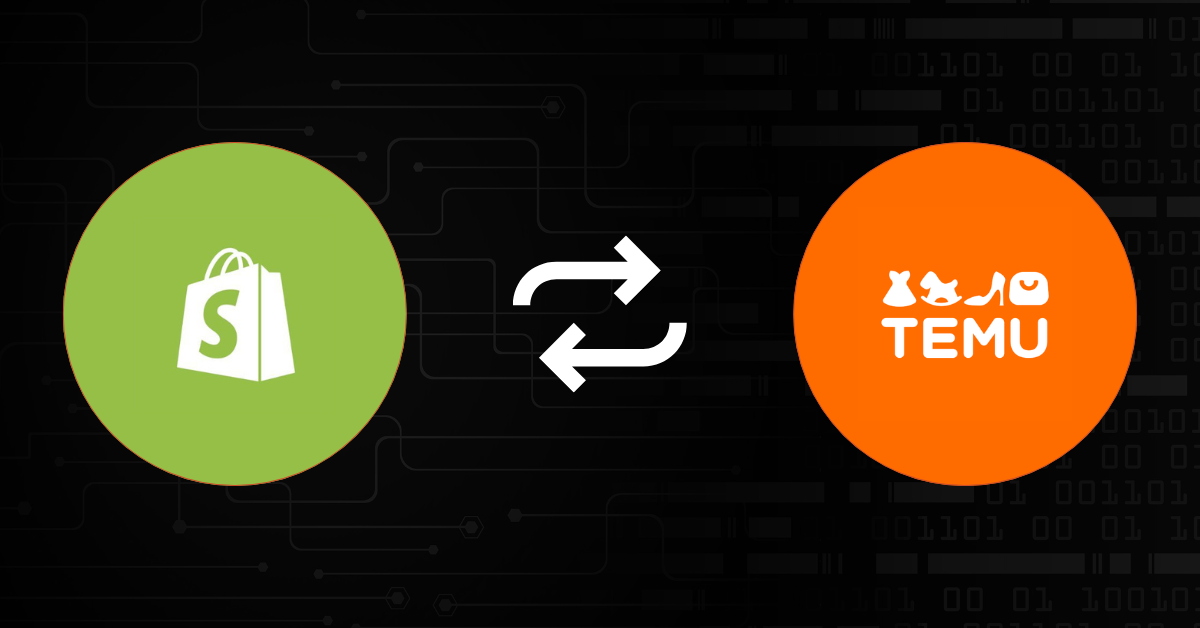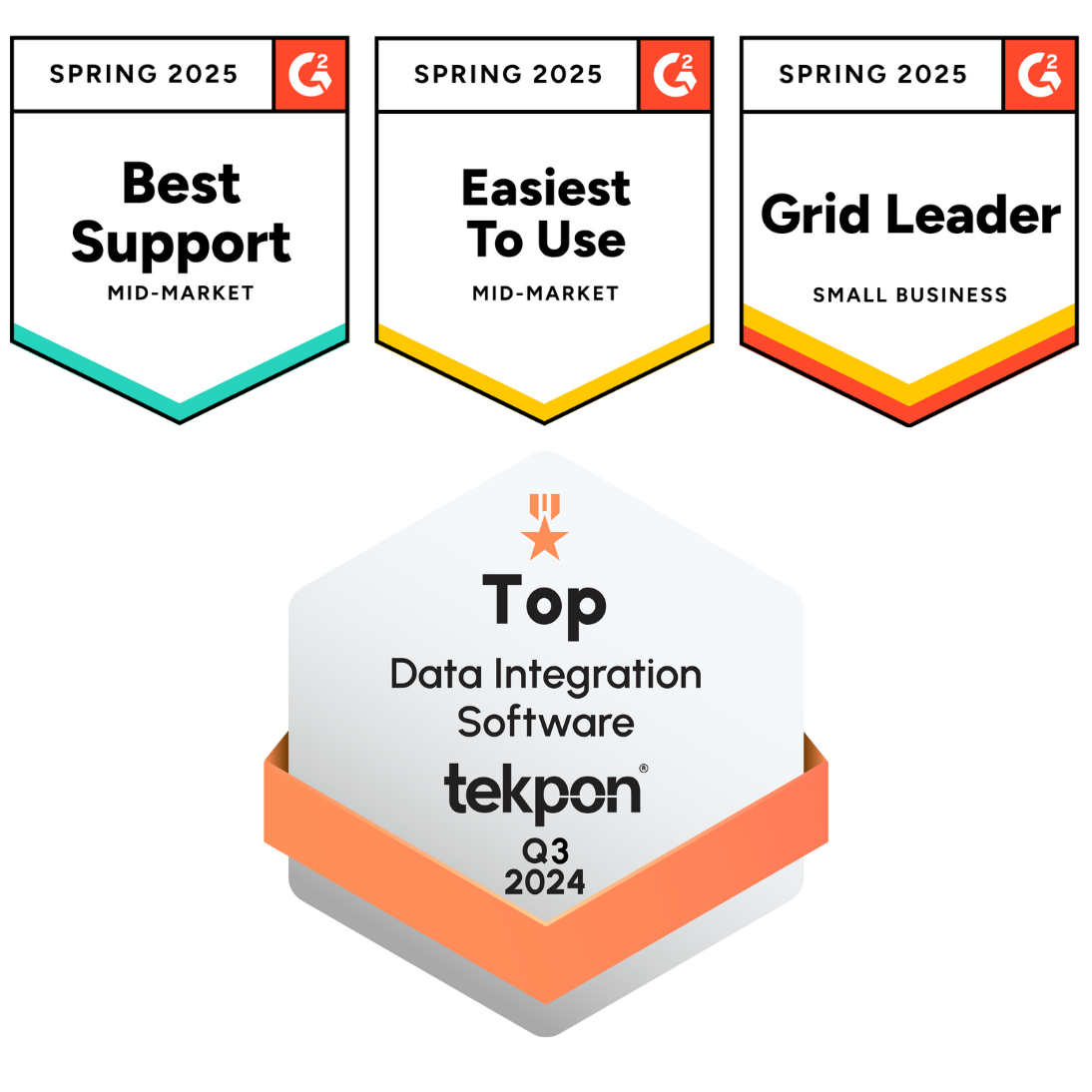If you’re a merchant juggling a Shopify store and a Temu Store, you’ve likely asked a simple question: “Why is it so hard to keep everything in sync?” Between inconsistent product listings, missed deliveries, confusing customer service interactions, and wrong or misleading info, it’s easy to feel overwhelmed.
Whether it’s your first time managing a dual-platform strategy or trying to optimize existing operations, the answer lies in integration.
What is Temu Shopify Integration?
As an ecommerce seller, expanding to Temu—the world’s second-largest online marketplace—opens doors to millions of new customers in the US, EU, Canada, Mexico, Japan, and beyond. But managing inventory, orders, and listings across Shopify and Temu manually leads to errors, stock mismatches, and operational inefficiencies.
Integrating Temu and Shopify ensures data can flow between the two systems automatically. It ensures data flows automatically between the two platforms, and eliminates the need for manually updating each system by automating how select information between systems. It ensures immediate access to information as needed.
Why Sync Temu and Shopify?
Integrating the systems offers a swathe of benefits:
1. Access to More Potential Customers
Temu, a growing online marketplace known for its broad product variety and competitive pricing, draws a global audience. Meanwhile, Shopify gives you complete control over your online store, branding, and customization options. Merging both platforms allows you to reach more consumers without double your workload.
2. Improved Customer Satisfaction
Offering consistent product information across platforms, fast deliveries, and responsive customer support boosts your brand’s reputation and improves overall customer satisfaction.
3. Improved Efficiency
By eliminating time-intensive, resource burning and error prone tasks, integration can ensure more efficient processes and reducing costs associated with inaccuracies.
Challenges of Managing Two Platforms Without Integration
Depending on the integration method chosen, there may be pricing consideration to factor in. Not opting to do so may cause the need to factor in the following challenges instead:
- Inventory chaos: Without a reliable inventory management solution, you risk overselling or underselling.
- Inconsistent product data: Title, Description, product feed, and product listings often don’t match.
- Order management overload: Different platforms mean different workflows and more time fixing mistakes.
- Support breakdown: Support teams may respond with unrelated or irrelevant answers due to a lack of synced data.
- Shipping inefficiencies: Confusion around shipping fees, delivery timelines, and warehouse coordination can hurt your ratings.
Learn more: The Complete eCommerce Integration Guide for 2025
Effective Ways to Integrate Temu with Shopify
While Temu does not offer native integration with Shopify, several methods are available to connect these platforms. These methods enable a smooth data flow, helping you seamlessly manage product catalogs, orders, and inventory. Here’s how to approach integrating Temu with Shopify:
Third-Party Integration Tools
Robust middleware tools available on the market are designed to bridge the gap between Temu and Shopify. They act as connectors, ensuring real-time synchronization of inventory, product listings, and orders between the two platforms.
The process typically involves setting up API credentials and mapping product feed fields from Shopify to Temu to ensure consistent and accurate data synchronization. This method allows error-free operations by automatically updating prices, stock levels, and product descriptions on both platforms.
Manual Integration via CSV Imports/Exports
Manual integration through CSV files may be an option for smaller merchants or those just starting. Merchants can sync product listings by exporting product data from one platform (such as Shopify) into a CSV format and then importing it into Temu.
However, this method is time-consuming and requires manual effort to ensure accuracy and consistency across both platforms. While it is a temporary solution for basic syncing needs, it does not provide real-time updates for a seamless customer experience.
Custom Integration
For businesses with technical expertise, creating custom API integrations between Shopify and Temu is another viable option. This requires developing a tailored solution that connects both platforms directly through their respective APIs.
The advantage of this approach is full control over the integration process, but it often comes with higher complexity and maintenance costs. Custom APIs can ensure real-time updates and minimize data discrepancies, but are typically suited for businesses with dedicated technical resources.
Best Practices When Integrating Temu and Shopify
When integrating Temu and Shopify, adopting best practices ensures that the integration remains efficient, accurate, and scalable. Here are some important strategies to consider:
Ensure Consistency in Product Data
It is crucial to maintain consistent product data across both platforms. Regularly sync product details like titles, descriptions, and prices to avoid discrepancies that could affect customer experience or lead to errors in order fulfillment. Automated syncing tools can help achieve real-time updates, but manual checks should be performed periodically to ensure accuracy.
Automate Inventory Management
Managing inventory manually across multiple platforms is prone to errors. An automated integration solution helps keep stock levels up-to-date in real time, reducing the risk of overselling or underselling. This also improves order fulfillment accuracy and customer satisfaction.
Implement Error Detection Mechanisms
Proactively identify potential data mismatches, pricing conflicts, and other issues affecting your operations. Set up error detection features that alert you to discrepancies before they impact customers. This ensures any issues are caught early and resolved without disrupting your service.
Sync Data Frequently
For up-to-date information, it’s important to synchronize your platforms regularly. The more frequently you sync, the less likely you are to run into issues with outdated product information, stock availability, or pricing errors. Consider using tools that support real-time syncing for seamless updates.
Streamline Order Management
Managing orders from multiple platforms can be a challenge. It’s essential to have a centralized order management system where you can view and process orders from both Temu and Shopify. This helps avoid duplicated efforts, reduces the chance of errors, and speeds up fulfillment and shipping processes.
Monitor Compliance and Security
Integrating platforms while ensuring data security and regulatory compliance is essential. Stay informed about consumer protection laws and ensure your integration tool complies with relevant regulations. This helps protect your business and your customers from potential legal and data breaches.
Regular Testing and Monitoring
Once integration is live, it’s important to continue testing and monitoring the system to ensure everything functions smoothly. Regular testing allows you to detect potential problems before they affect customers, helping you maintain high standards for service and operational efficiency.
Integrating Temu and Shopify with DCKAP Integrator
DCKAP Integrator is an integration platform designed to streamline operations between ecommerce platforms like Shopify and marketplaces like Temu. It acts as the digital bridge, connecting your product catalogue, order systems, and customer data for a smooth fulfillment process.
DCKAP Integrator ensures smooth, automated synchronization between Temu and Shopify, including:
Product Catalog Sync
- Batch sync every 5 minutes (configurable to 1 minute if needed).
- Bulk product upload which allows you to list hundreds of products on Temu in minutes.
- Supports variants, images, and descriptions and everything in between, get full product data transfer.
- Handles category mapping for you, ensuring the right products land in the right Temu categories.
Order Management
- New Temu orders auto-create in Shopify for unified fulfillment.
- 5-minute batch sync (and even faster with Webhooks).
- Cancellation handling with ease. If an order is canceled on Temu, inventory is adjusted in Shopify.
Real-Time Inventory Sync
- Shopify remains the source of truth – No conflicting stock levels.
- Webhook-powered near real-time updates (1-minute sync).
- Prevents overselling – Stock adjustments reflect instantly.
Shipping & Tracking Sync
- Shopify → Temu: Push tracking numbers to Temu for buyer visibility.
- Temu → Shopify: Sync fulfillment statuses back to Shopify.
- 5-minute batch updates so you that you’re all up-to-date.
Key Features That Make DCKAP Integrator The Best Choice For You
1. Real-Time Data Sync
No more waiting hours or days for updates to reflect. DCKAP offers real-time synchronization for inventory, product information, and orders between Temu and your Shopify store.
2. Easy Product Imports
Whether you’re importing thousands of small pieces or a few high-margin items, DCKAP makes the import process frictionless and accurate.
3. Cross-Platform Order Management
Orders placed on Temu can sync to Shopify and vice versa, giving you a single interface to manage operations and support requests.
4. Customization Options for Product Listings
Adjust product titles, descriptions, product feed elements, and total item cost before pushing products live. This avoids duplicate or conflicting data.
5. Error Detection and Alerts
Catch potential mismatches, pricing conflicts, and warehouse syncing issues before they affect your customers. You can avoid lots of different tricks competitors use to mislead or manipulate listings.
6. Effective Support
Offload all concerns associated with customization, maintenance, or support. DCKAP Integrator is backed by a team of experienced integration engineers who ensure your team can focus on what they do best.
7. Connect To More
It’s not just ERP to Temu, connect to any system for real-time insights. DCKAP Integrator can also sync data from your CRM, EDI, WMS, OMS, and any other digital systems with ease.
Next Steps?
If you’re running a Temu Store and a Shopify online store, you’re already ahead in reaching modern consumers. But you need to integrate, not juggle, to scale operations and stay lean.
DCKAP Integrator enables seamless Temu Shopify Integration with reliable automation, intelligent data mapping, and powerful customization. It helps you deliver what your customers expect: fast updates, clear communication, and product availability. Talk to our integration experts to understand how you can upgrade your operations to online sales and more, with an effective ERP-first integration platforms.





